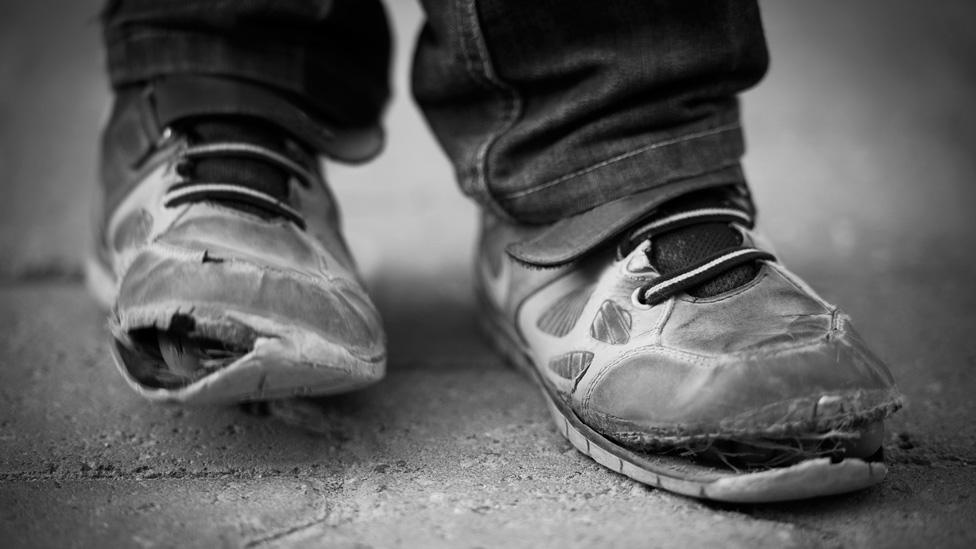Alarm over growing numbers of children in care in Wales
- Published
"I got split from my five brothers and sisters aged two"
Wales now has the highest proportion of children in the UK being cared for by the state, prompting one expert to raise concerns.
There are 7,170 children being looked after away from home in Wales - which is 1.14% of children.
The rate has steadily increased since 2003, when it was 0.64% - while the current UK average is 0.72% of children.
The Welsh government said reducing the number in care was a priority.
Donald Forrester, director of Cardiff University's Children's Social Care Research and Development Centre, said there were many factors behind the statistics, including poverty.
But he also told BBC Wales' Newyddion S4C programme that a lot of the increase did not seem "to be because of changes in things like deprivation".
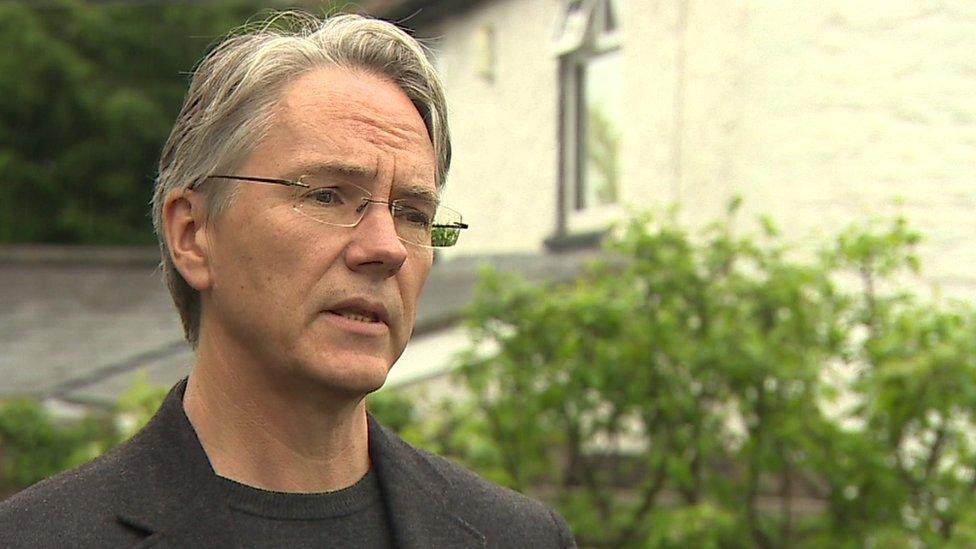
Donald Forrester questions why care rates are higher in different parts of Wales
He said a child in Wales was 50% more likely than a child in England to be placed into care, and also pointed to varying rates across Welsh council areas as proof there were other factors behind Wales' high rates.
"Since 2003, there's been an 80% increase in the numbers of children in care in Wales. In Carmarthenshire, the rate has stayed exactly the same," said Prof Forrester.
"A child in Torfaen is five times more likely to be in care than a child in Carmarthenshire. Some of that may be down to deprivation, but a lot seems to also be about the way some local authorities practise.


Prof Forrester said nobody was saying no children should be in care.
"But as a country, we need to be confident we're doing everything we can to help families stay together before a child comes into care," he said.
"The big variations between local authorities in Wales and the differences between Wales and England means this is really something we need to be looking at much more closely."

'I felt lonely'
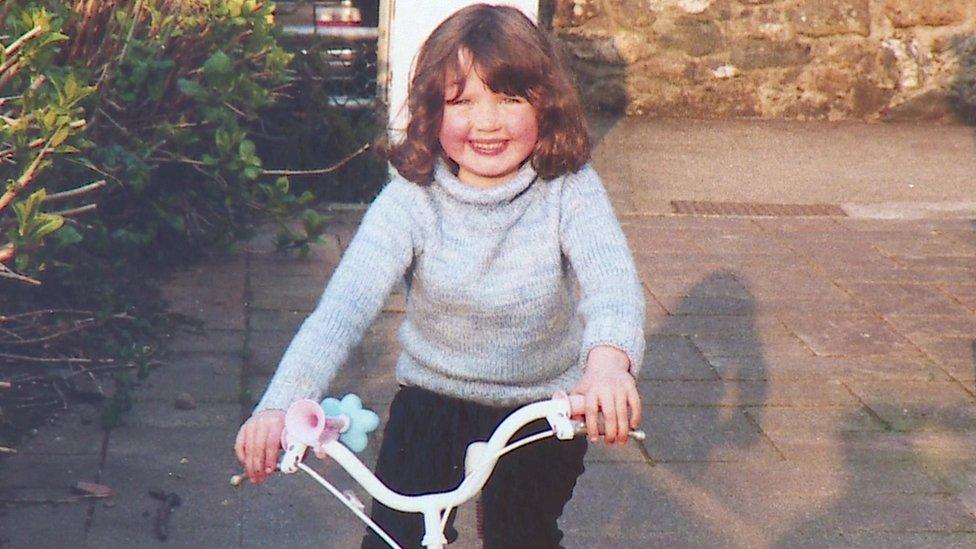
Angharad Roberts was moved six times between the ages of two and nine
Angharad Roberts, who lives on Anglesey, was put into care aged two. One of seven siblings, she said although "there was a lot of love" at home, her parents "couldn't look after" the children.
Separated from her brothers and sisters, between the ages of two and nine she was moved six times.
She then spent seven years with one foster family before moving once more for the final two years of full-time education.
She said she faced difficulties while growing up as a result of being placed in care.
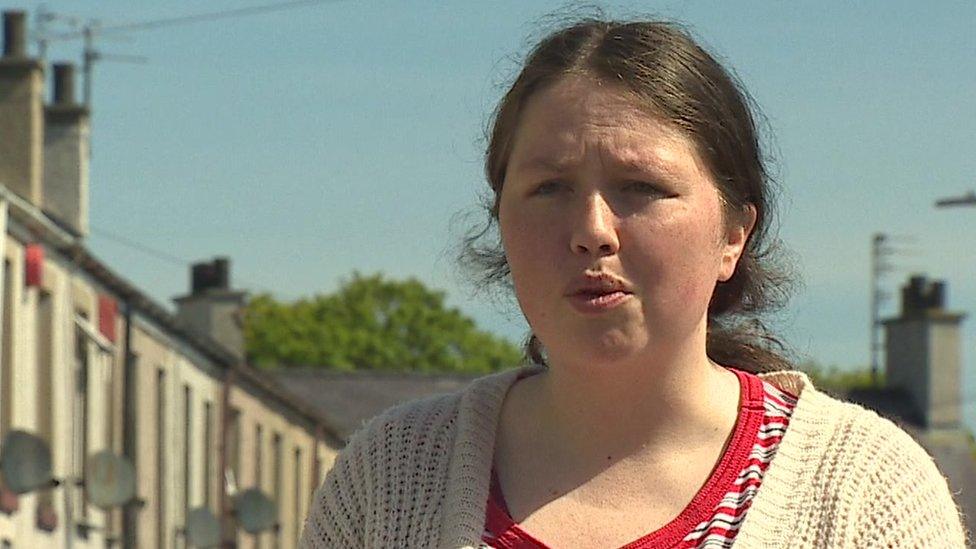
Being in care was a difficult experience, says Angharad Roberts
"I felt lonely and I didn't like it. I had to move around, live with different families, go to different schools."
"I found it difficult to settle down and make friends. And also to build a relationship with my foster parents because I thought I'll be leaving soon, what's the point?"

Child psychologist Mair Edwards said, from her experience, a more cautious approach was often taken in Wales when it came to child protection.
She said she believed this was positive for the country.
"Wales generally, and Welsh local authorities take child protection extremely seriously," she said.
"I work across the border in England occasionally, and there are times there where someone comes across cases where children should have been put into care much earlier.
"So I see it as a positive that local authorities here take child protection seriously."
'Reforming services'
In England, the UK government said its education secretary had been clear the social care system was not always delivering a better quality of life for those it was designed to help, and an independent review of children's social services was being undertaken to tackle inconsistencies across the country.
The Welsh government said: "We are committed to providing more services for parents whose children are at risk of coming into care and exploring ways of reforming services for looked after children and care leavers.
"This includes providing resources to enable children placed outside of Wales to be placed closer to home and strengthening public bodies' role as corporate parent."
The Welsh Conservatives called for action "before we see another lost generation in Wales".
Social services spokesman Gareth Davies said: "A lack of improvement in our education system, combined with a failure to lift our most desperate communities out of poverty, has created an uneven playing field where far too many children are left behind, never to realise their full potential."
Related topics
- Published1 June 2021
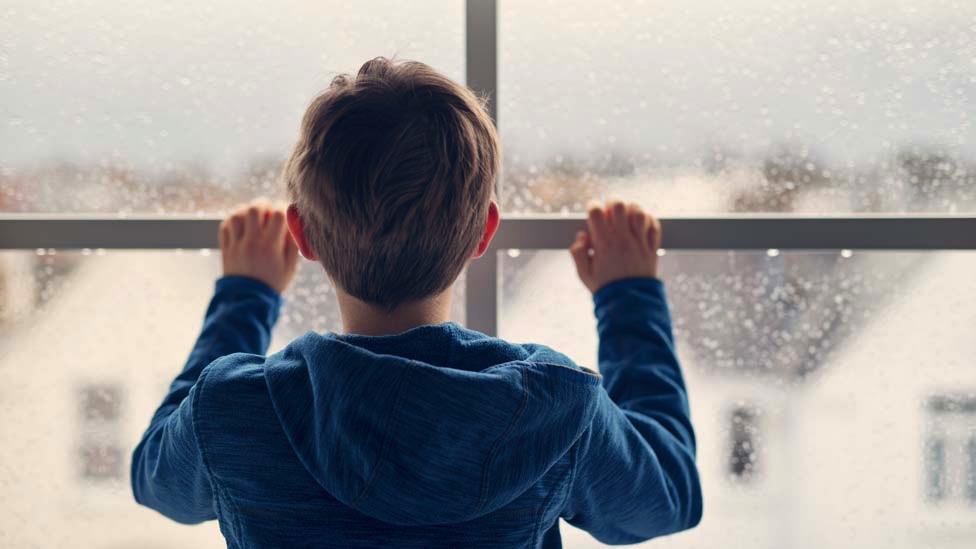
- Published27 February 2020
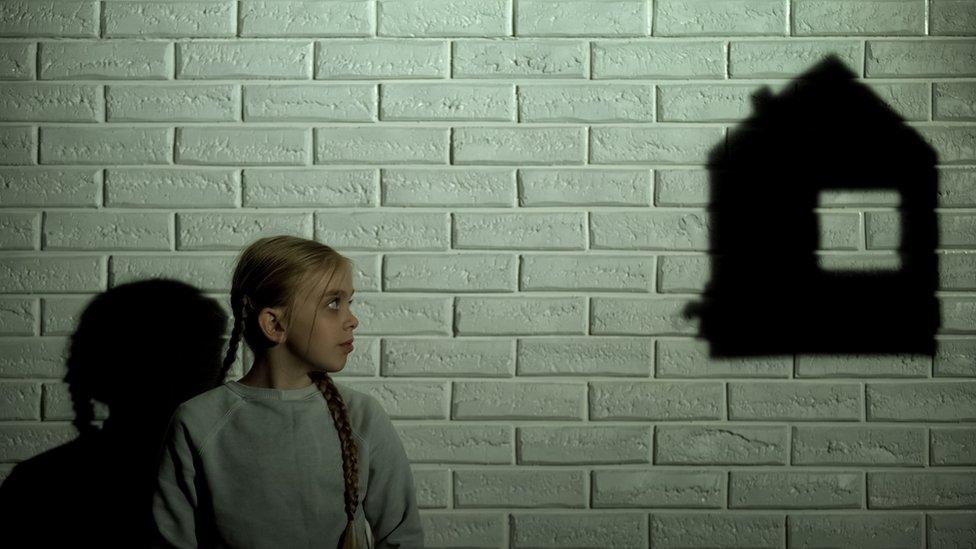
- Published24 October 2019
